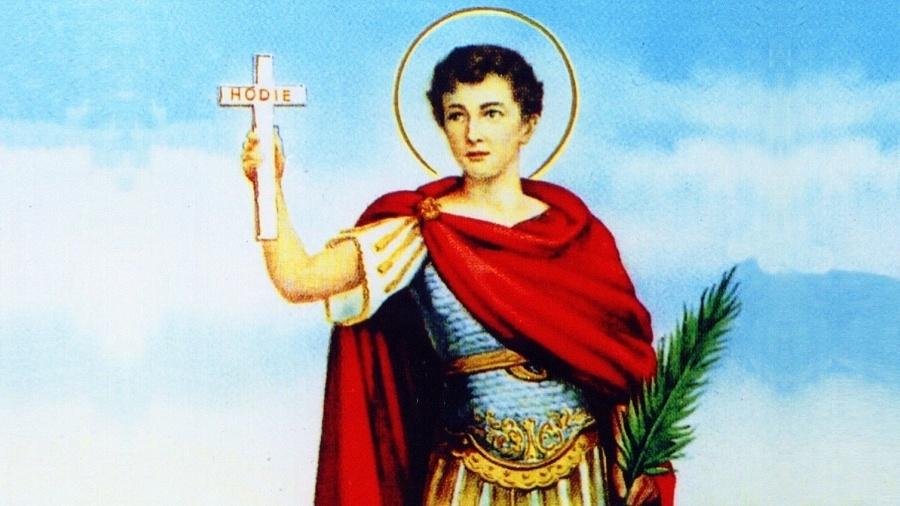Glauberianas (I): trajectory of a Brazilian filmmaker.

Corisco nos encara com o punhal dividindo precisamente seu rosto entre a sombra e a luz, enquanto o sol do Nordeste, amarelo e vermelho, é refletido no chapéu do cangaceiro. O cartaz de "Deus e o Diabo na Terra do Sol", assim como o próprio filme, é árido e violento.
Adaptação do poster de Deus e o Diabo na Terra do Sol, de Glauber Rocha, arte de Rogério Duarte.
Por: Bernardo Buarque de Hollanda
Gláuber Rocha was born in Vitória da Conquista, in the south of Bahia, northeastern Brazil, in 1939. His father, Adamastor Rocha, was an engeneer, who used to build roads – like Rio-Bahia – and bridges around that poor region of the country. At that time, Gláuber Rocha was young and he travelled with his father, visiting many states, lands and people from "sertão". His mother, Lúcia Rocha, was a very religious person, devoted to Protestantism, who used to read the Bible to him. Later on the mystic discouse of the Old and New testament has influenced his perspectives in cinema.
Since his childhood, Gláuber Rocha had an independent spirit. He did not like schools and his teacher complained because he asked many questions. Otherwise, he loved to study: drawing, creating stories, writing poems, reading literature: Monteiro Lobato, José Lins do Rego, José de Alencar, Jorge Amado, Graciliano Ramos, among others. When he was twelve years old, Rocha's family moved to Salvador, the capital of his state. There, years later, he got into the university in order to study Law, which offered a hole knowledge of Human Sciences, History, Philosophy and Arts.
There were many foreign teachers – from Portugal, France and Germany –, who had influenced him with a classical learning. In the University of Bahia, there was also a cineclub, where he started to love cinema, watching films from all over the world, since American westerns till Russian vanguards. At the age if ninetheen he bought a camera, gave up the studies in Law and started making experimental movies.
More than a cineast or a simple professional, Gláuber Rocha was a thinker of our world, our society and our nation. Cinema was the best way for him to expose his ideas. As an intellectual, he understood that the image was the language of the future and the twentieth century was the century of the cinema. From Glauber Rocha's point of view, cinema is something very special to the humanity, because it joins both spheres: industry and art; technology and phantasy; reason and dream; bright and darkness. On the other hand, Brazilians used to watch American and European films and forgot that their own nation has developed a great culture, recognized all over the world.
In literature, the best exponent was Guimarães Rosa, Jorge Amado and José Lins do Rego; in music, Heitor Villa-Lobos; in painting, Cândido Portinari; in sculpture, Aleijadinho; in architecture, Oscar Niemayer; in anthropology, Gilberto Freyre; and in cinema, Humberto Mauro.
Gláuber Rocha thought that Brazil used to copy the style of Hollywood studio films. Against it, he founded the motto: "an idea in head and a camera in the hand". The camera was not stopped in a fixed position anymore. The images took place around the streets. The main characters were not beautiful top models. The new actor was the anonymous people, who can act more spontaneously.
His movies were always related to Brazilian history: the epic movement of Canudos, the death of Lampião, the Indians, the black people and the fishermen's lives, the dictatorships in South America. Although he used to talk about sad events, as the starvation of the poor people, he also showed the happiness of these unknown people: the popular parties, the carnival, the singers from the Northeaest, the melody of folklore songs, the popular dances, the devotion to the saint George, as well as to the lord, Jesus Christ.
In Brazil, Gláuber made five films: Barravento; The black god and the blond evil; Land in trance; The dragon of badness against the fighter saint; and The age of Earth. In Cuba, he made the documentary History of Brazil. In Italy, the film Clear. In Spain, the movie Cut heads. In Portugal, The arms and the people. And, in Africa, The lion has seven heads.
Glauber Rocha passed away in Sintra, Portugal, 1981. His funeral took place at Parque Lage, in the city of Rio de Janeiro, gathering intelectuals, artists and many other personalities from Brazilian culture.
Edição Final: Guilherme Mazzeo
Siga nossa página no Instagram





ID: {{comments.info.id}}
URL: {{comments.info.url}}
Ocorreu um erro ao carregar os comentários.
Por favor, tente novamente mais tarde.
{{comments.total}} Comentário
{{comments.total}} Comentários
Seja o primeiro a comentar
Essa discussão está encerrada
Não é possivel enviar novos comentários.
Essa área é exclusiva para você, assinante, ler e comentar.
Só assinantes do UOL podem comentar
Ainda não é assinante? Assine já.
Se você já é assinante do UOL, faça seu login.
O autor da mensagem, e não o UOL, é o responsável pelo comentário. Reserve um tempo para ler as Regras de Uso para comentários.